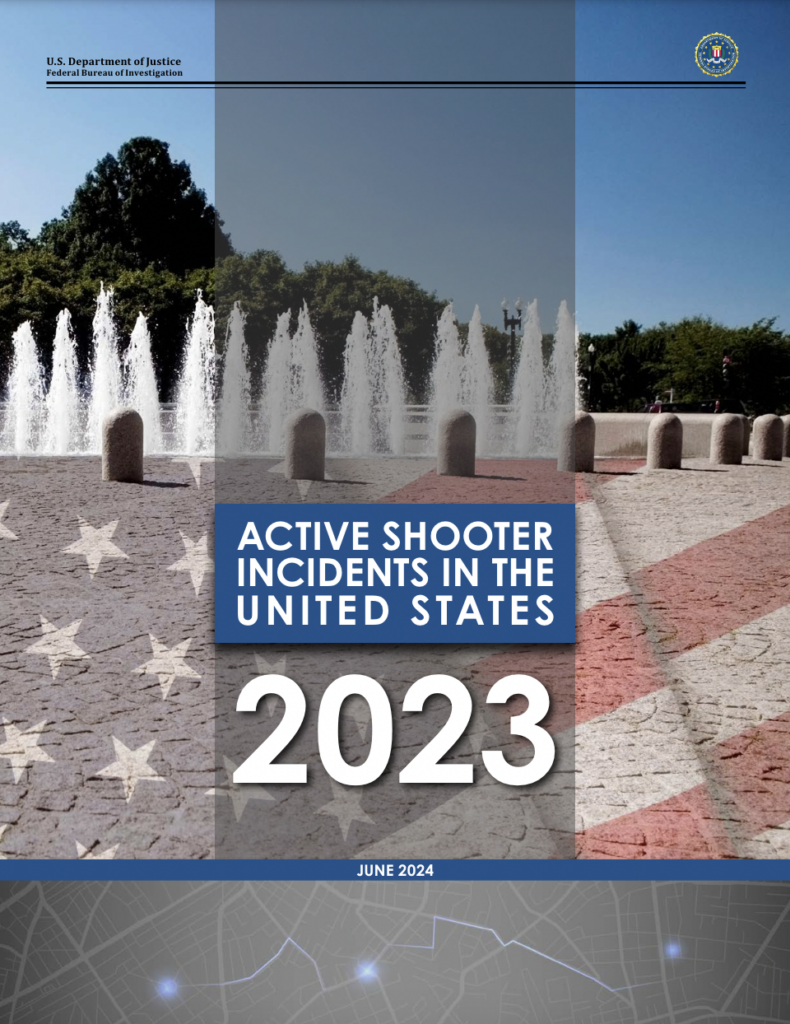FBI Shooters Report Excludes Any Data Relating to Mental Health and Psychiatric Drugs

June 25, 2024
A new report by the Federal Bureau of Investigation (FBI) documenting the common factors relating to active shooter incidents completely excludes psychiatric drug use. The executive summary highlights that in 2013 President Obama signed into law the Investigative Assistance for Violent Crimes Act of 2012 in response to clarifying the role of the FBI in the aftermath of the Sandy Hook mass shooting. Nothing in this Act prohibits or limits the collection of vital data related to mental health products or services that may be pertinent in mass shooting incidents.
Ironically, in the introduction, the FBI explains that it will not include information about drug related violence. Why? What does that even mean? Is the FBI referring to illegal and legal? Even though the intent of the report is to “better understand the levels of threats associated with active shooter incidents,” the FBI has deliberately left out information that not only provides insight into the actions of the shooters, but in today’s prescription-fueled drug world, is critical. Missing from the FBI report literally is anything to do with mental health. Psychiatric drugs, psychotropic drugs, mental health, mental health records, behavioral health, or medications do not show up in the report.
Oops, mental health does appear in the report in one spot where the FBI is highlighting the location where one shooting occurred. The real crime here is how the FBI has deliberately excluded any information that is common in so many of the shooters’ backgrounds – psychiatric drug use. There is a long history of psychiatric products and services rearing its ugly head from Columbine, Colorado to Sandy Hook, Connecticut, to Parkland, Florida and most recently Lewiston, Maine. Rather, the FBI believes a 29-page report discussing the location of the shootings, how many have been killed and wounded and which months had the highest number of shootings is helpful to the public.
One might find that The Investigative Assistance for Violent Crimes Act would focus on the shooters’ mental health background. For example, information about Adam Lanza’s treating psychiatrist and whether Lanza was on psychiatric medications at the time of the shooting might be interesting. To date, twelve years after the shooting, Lanza’s mental health records still have not been made public. There is no doubt that the FBI could get them and make them part of one of these nifty reports. At least the public would be getting useful information.
Or how about the FBI provide some detailed information about Lewiston, Maine shooter, Robert Card. Card spent two weeks in a psych ward at Four Winds Psychiatric Hospital, was medicated and released. What were the medications Card had been prescribed that may have contributed to his state of mind at the time of the shooting, especially if he had stopped the medications?
It’s shocking that the FBI, under the guise of the United State Justice Department, released such a useless report that continues to exclude data that may help the public understand what is going on with the shooters prior to the attacks. Where is the Behavioral Health Unit within the FBI? Clearly this unit couldn’t object to the missing information relating to the psychiatric treatment and psychiatric medications these killers are prescribed. Or is it more sinister? Could it be the Behavioral Health Unit is too cozy with the behavioral health community, including the pharmaceutical industry?
Given the FBI’s continued deliberate withholding of mental health data in its shooter reports one is left with wondering if the FBI is incompetent, corrupt or a combination of both. Or, maybe, the shooter reports really aren’t intended to assist the public. If that is the case, the FBI has succeeded.
Be the Voice for the Voiceless
Every dollar you give is a powerful statement, a resounding declaration that the struggles of these families will no longer be ignored. Your generosity today will echo through generations, ensuring that the rights and well-being of children are fiercely guarded.Don’t let another family navigate this journey alone. Donate now and join us in creating a world where every child’s mind is nurtured, respected, and given the opportunity to thrive. As a 501(c)3 organization, your donation to AbleChild is not only an investment in the well-being of vulnerable children but also a tax-deductible contribution to a cause that transcends individual lives.

